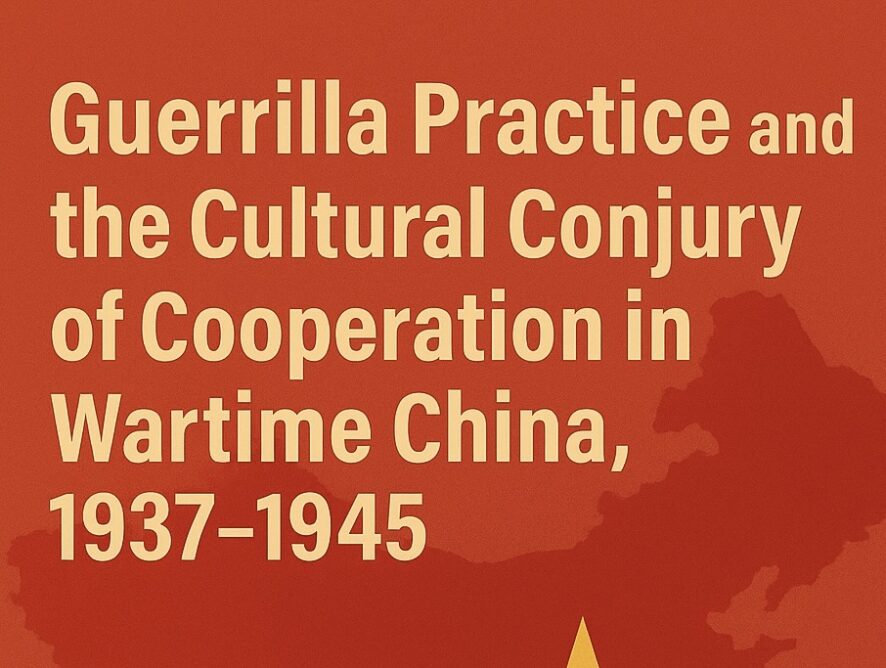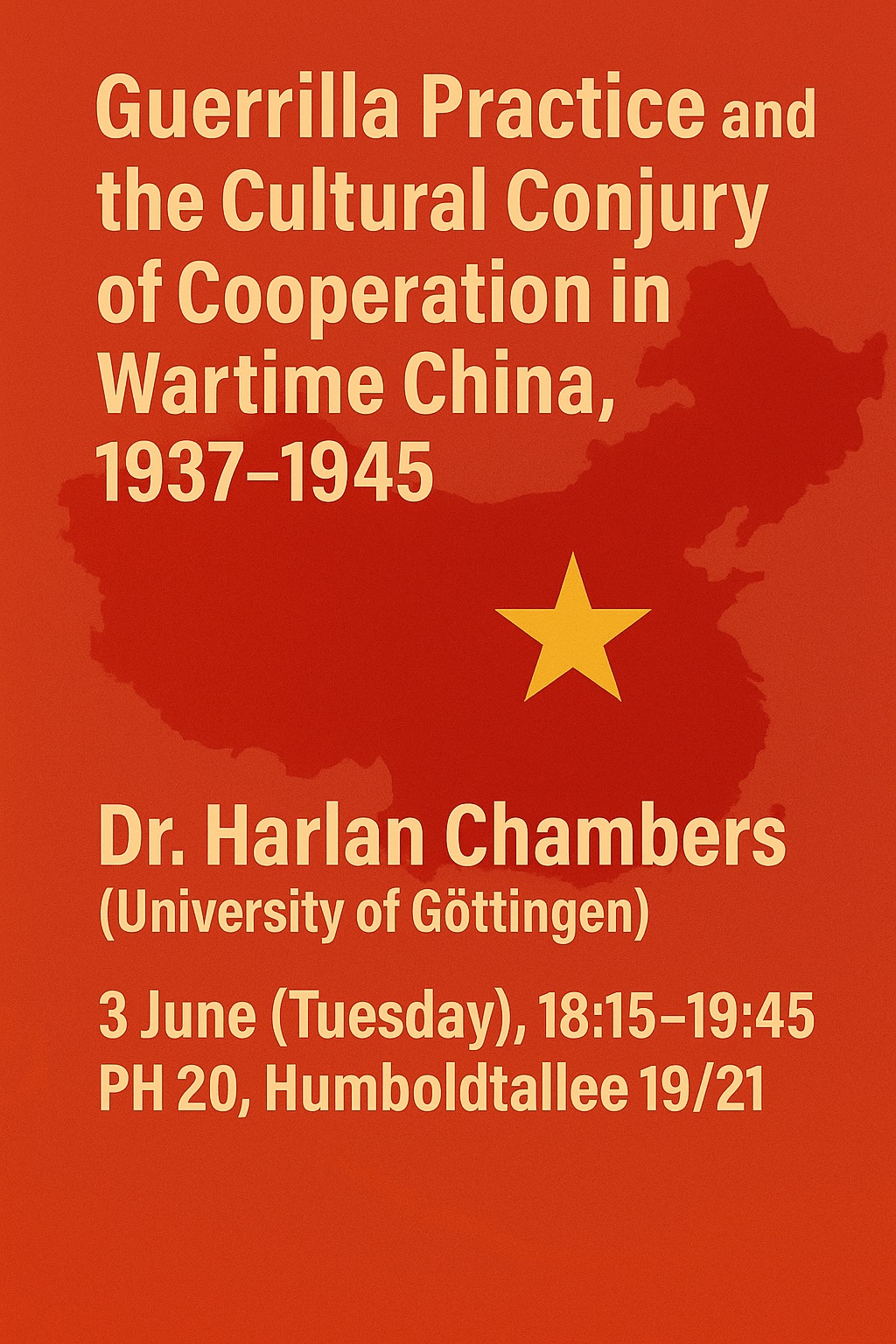
- This event has passed.
Lecture: Guerrilla Practice and the Cultural Conjury of Cooperation in Wartime China, 1937-1945
June 2025 @ 18:00 - 19:30
Event Navigation

Guerrilla Practice and the Cultural Conjury of Cooperation in Wartime China, 1937-1945
Dr. Harlan Chambers (University of Göttingen)
PH 20. Hörsaal der Philosophischen Fakultät, Humboldtallee 19/21
3. June (Tuesday), 18:15-19:45
Abstract:
Within the long, global history of modern guerrilla warfare and related practices of “small wars,” revolutionaries and scholars alike have regarded Mao Zedong’s texts on guerrilla war as formative to post WWII liberation struggles. In this talk, I will argue that beyond Mao’s famous texts on military strategy, the “guerrilla” as it was developed in China’s War to Resist Japan articulated a cultural and philosophical project to forge a new logic of political-economic development. Progressive thinkers and creative writers working amongst guerrilla zones narrated “guerrilla practices” as those of cooperative construction, a non-exploitive form of economic organization that rejected the extractive economics of fascism that were engendered by Japanese invasion and Nationalist hegemony.
First, I will examine how Chinese thinkers staged and debated the guerrilla in 1930s China, particularly in light of Italy’s invasion of Abyssinia (Ethiopia). By analyzing international developments, progressive thinkers not only formulated the guerrilla as a project of social reconstruction but interrogated it as a philosophical problem for thinking world history. The second part builds upon these formulations of the guerrilla to understand the particular “guerrilla practices” of the late 1930s, which extend beyond Mao’s famous military tactics to encompass forms of cooperative economic construction in the base areas of northern China. I show that, by the early 1940s, guerrilla zones’ economic practices also integrated culture workers as essential for developing their particular forms of cooperative labor. Considering several cultural creations from these guerrilla zones, particularly around the Jin-Cha-Ji base area, I will argue that cultural works conjured a new logic of cooperatively organized economic production, formative to the guerrilla project.
Speaker:
Harlan Chambers completed his Ph.D. in Modern Chinese Literature and Culture at Columbia University in 2022 and served as a Visiting Assistant Professor of History at Illinois Wesleyan University before joining the Department of East Asian Studies at the University of Göttingen in 2024. As an interdisciplinary scholar of Chinese culture and history, as well as feminist and critical theory, his research interrogates the role of cultural practices in processes of social transformation, integrating archival research with analyses of cultural texts. Harlan is part of a research team exploring the history of conceptions of world order at the University of Göttingen.
Organizer:
Prof. Dominic Sachsenmaier, University of Göttingen

Image Disclaimer:
This promotional poster was generated using OpenAI’s ChatGPT (DALL·E) for non-commercial academic purposes.
